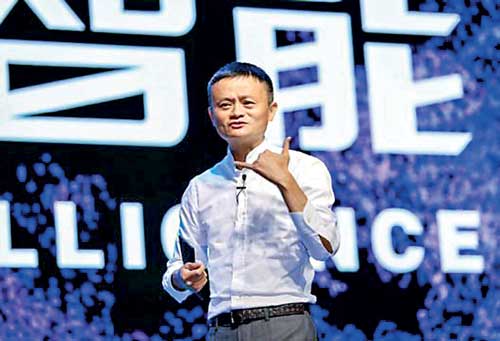Friday Feb 13, 2026
Friday Feb 13, 2026
Thursday, 12 October 2017 00:00 - - {{hitsCtrl.values.hits}}
Beijing (Reuters): China’s top e-commerce firm, Alibaba Group Holding Ltd, is launching a $15 billion drive to build overseas research hubs as the deep-pocketed firm looks to compete with global leaders in e-commerce, logistics and cloud technology.
The Alibaba ‘Damo’ academy would launch eight research bases in China, Israel, the United States, Russia and Singapore and was hiring 100 researchers to work on artificial intelligence (AI), quantum computing and fintech, the company said in a statement on Wednesday.
“The Alibaba DAMO Academy will be at the forefront of developing next-generation technology that will spur the growth of Alibaba and our partners”, Chief Technology Officer Jeff Zhang said.
The Chinese giant and its affiliates have undergone a rapid expansion in the past year, bringing it into direct competition with U.S. e-retailer Amazon.com Inc, as well as global payments, cloud and logitics firms. Since last year Alibaba has invested roughly $2 billion to acquire a majority stake in Singapore-based retailer Lazada.com, creating a network of e-commerce hubs across Southeast Asia in partnership with payment affiliate Ant Financial.
It has also pursued a 1.2 billion bid for U.S. money transfer service MoneyGram, in a pending deal that has come under scrutiny from critics who say it poses a national security threat.
Along with an existing data science research lab in California, Alibaba has opened new data centers in Europe, the United States, the Middle East, Australia, Japan, India and Indonesia since 2016, in a bid to boost its cloud business.
The investment also comes as Beijing prioritises state funding in quantum computing, AI and big data, urging provincial governments, universities, the military and private firms to play a bigger role in developing advanced technology in areas where China trails developed countries.
Alibaba currently has 25,000 engineers on staff, it says, and says the new research infrastructure will help them meet a goal of two billion customers within two decades.